The Alliance for Tompotika Conservation (AlTo) is a U.S. based nonprofit that works with its sister Indonesian organization to protect the endangered species, forests and ecosystems surrounding Mount Tompotika, Sulawesi. ICFC works with AlTo to protect Maleo and sea turtle nesting areas and build a local conservation ethic through public education programs. Project page
Our Project Partners
ICFC's field partners are experienced local organizations with a deep knowledge of conservation needs and the sociopolitical context.
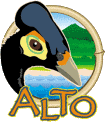

The Amazon Conservation Association (ACA) is a U.S. based nonprofit organization active in Peru and Bolivia. Founded in 1999, ACA works to create networks of state, community and private lands managed for conservation and sustainable resource use in the Amazonian forests of Peru and Bolivia. ICFC partners with ACA and its sister organization ACCA (see below) in the protection of the Los Amigos Conservation Concession in Peru. Los Amigos project page | Andean Amazon project page
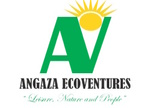
Angaza Vijiju is a social enterprise focused on promoting sustainable development practices in rural communities in Kenya. Project page

Asociación Adopta el Bosque Panamá (ADOPTA) works to protect the natural wonders of Panama and educate the general public about the importance of the neotropics, Project page

Asociacion Ambiente Sur is an Argentinian conservation organization founded in 2007 by a group of local people who shared a concern about conservation and environmental protection in Patagonia, and who had a common vision of grassroots organization and involvement of local people. Project page

Asociación para la Conservación de la Cuenca Amazonica (ACCA) is a Peruvian nonprofit organization promoting research and conservation in the Amazon Basin of Peru. Working in partnership with the Amazon Conservation Association, ACCA holds two conservation concessions, runs three biological research stations, and works with rural communities to develop micro-enterprise projects tied to sustainable forest management. Los Amigos project page | Andean Amazon project page

Asociación Armonia is a Bolivian nonprofit organization dedicated to conservation of birds and avian habitat in Bolivia. ICFC partnered with Armonia in relation to its Barba Azul Nature Reserve, which protects the endangered Blue-throated Macaw. Project page
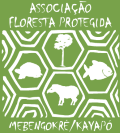
Founded in 2002, Associação Floresta Protegida (AFP) is a Brazilian non-governmental organization whose goal is to strengthen the autonomy of the Kayapó indigenous people in the protection and sustainable management of their territories. AFP works with Kayapó communites (mostly east of the Xingu River) to (1) monitor and protect Kayapó lands from illegal incursions (for logging, mining, clearing for agriculture, etc.); and (2) develop economic activities that are sustainable and culturally compatible. Project page
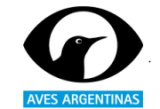
Aves Argentinas was founded in 1916 with a mission to protect wild birds and thier habitats. It strives to increase awareness about the importance of biodiversity conservation through advocacy, education, and research with a focus on birds as environmental indicators as measures of our quality of life. Mar Chiquita project page

The Belize Zoo and Tropical Education Center is a non-profit organization focused on wildlife conservation through wildlife rehabilitation and environmental education. The zoo exhibits over 175 animals, representing over 45 native species — none taken from the wild. Project page
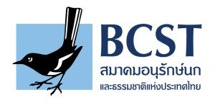
The Bird Conservation Society of Thailand conserves birds and nature in Thailand and is the country partner of BIrdlife International. BCST works at the community level to spread awareness and reconnect people to nature. Project page
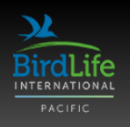
BirdLife International Pacific is a partnership of seven national grassroots conservation organizations in the Pacific region that are devoted to bird and nature conservation. Project page
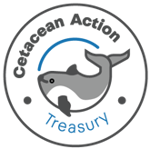
Cetacean Action Treasury partners with Mexican organizations to support adoption of fishing gear that poses no risk to vaquitas, and to search for and eliminate illegal nets from the Vaquita Refuge. The group also supports research on the status of vaquitas, which is critical to convince authorities that the species remains viable. Project page
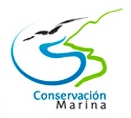
Conservación Marina is a Chilean organization dedicated to the conservation of marine biodiversity through research, environmental education and the promotion of sustainable use of marine resources. Project page
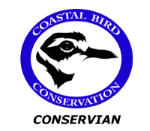
Conservian Coastal Bird Conservation (CBC) is a program of the US non-profit organization, CONSERVIAN. CBC is a field-based, science-driven organization conducting research and monitoring activities with a primary goal of protecting shorebird and seabird species and their vulnerable, diminishing habitats throughout the Western Hemisphere. Project page
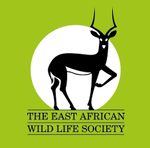
The East Africa Wildlife Society works with community organizations to conserve forests, wetlands, marine ecosystems and wildlfie. It also engages in policy advocacy in natural resource conservation and management. Project page

Fandroakando is a grassroots NGO, created by a group of Malagasies passionate about conserving native habitats. Their goal is to conserve the flora and fauna in the Rabondro Reserve in northeast Madagascar. Project page
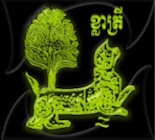
Fishing Cat Ecological Enterprise is a Cambodia-based ecological enterprise whose mission is to investigate, protect, restore and rewild the Cambodian wetland ecosystems and to ensure conservation of threatened species within them and empower local communities to be their Guardians. This small project does not have an ICFC webpage but we welcome support for it.

Fundación Atelopus is dedicated to conserving amphibians and reptiles in the Colombian Caribbean through research and action involving local communities. It integrates scientific, traditional and cultural knowledge to formulate effective biodiversity action plans that benefit local communities. Project page
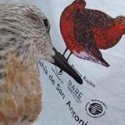
Fundación Inalafquen is a largely volunteer run organization in Patagonia dedicated to the conservation of biodiversity, susatianable use of resources and a better quality of life for all. Focal areas are shorebirds, bats, and heavy metal contamination in San Antonio Oeste, Argentina. Project page
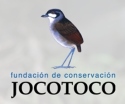
Fundación Jocotoco is an Ecuadorian non-government organization established in 1998 to protect land of critical importance to the conservation of Ecuador's endangered birds and associated biodiversity. Jocotoco primarily achieves this by purchasing lands and managing them as ecological reserves. ICFC has partnered with Jocotoco in support of its Jorupe Reserve and further collaboration is in the works. Project page
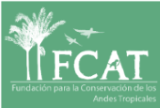
FCAT (Fundación para la Conservación de los Andes Tropicales) is a grassroots organization that is restoring vanishing forests and conserving endangered species with local Ecuadorian communities. Project page

Fundación para el Ecodesarrollo y la Conservación (FUNDAECO) is a Guatemalan conservation organization founded in 1993 that works to establish and manage protected areas, promote sustainable land management practices, and improve the lives of local rural communities. FUNDAECO will manage the Sierra Caral Reserve purchased by ICFC and other conservation organizations. Sierra Caral project page | Laguna Grande project page | Yal Unin Yul Witz project page

The Guanacaste Dry Forest Conservation Fund (GDFCF) is a U.S.-based nonprofit that promotes conservation, education, science-based management and biodiversity development at Area de Conservación Guanacaste in Costa Rica. ICFC partners with GDFCF to support positions for several Parataxonomists — staff hired from the rural community who are trained to conduct taxonomic and ecological research and data collection. Project page

Herp Conservation Ghana (Herp-Ghana) is dedicated to the conservation of amphibians and reptiles in Ghana and the sustainable management and preservation of the habitats on which these species depend. Project page
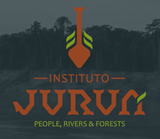
Instituto Juruá is a grassroots non-profit conservation organization that provides financial and technical support for community-based initiatives of natural resource management and offers capacity building opportunities for local communities to help them sustainably manage their natural resources and protect their territory. Project page

Instituto Kabu is a Brazilian non-governmental organization that represents indigenous Kayapó communities (west of the Xingu River) in the southeastern Amazon. Instituto Kabu works to: (1) monitor and protect Kayapó lands from illegal incursions (for logging, mining, clearing for agriculture, etc.); and (2) develop economic activities that are sustainable and culturally compatible. Project page

Instituto Raoni (IR) is a Brazilian non-governmental organization based in Colider, Mato Grosso, that defends the interests of indigenous communities, strengthening their ability to protect their territories and helping them develop sustainable economic activities, protect biodiversity and reduce their vulnerability to with predatory activities such as illegal logging and mining. Currently, IR represents about 2,300 indigenous people in the Lower Xingu region, between the states of Mato Grosso and Pará. Project page
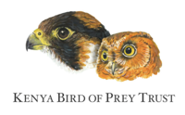
The Kenya Bird of Prey Trust seeks to understand, protect and restore raptor populations in Kenya, through field monitoring, evidence-based raptor management and community education and capacity-building. Project page

Since 2013, the Kijabe Forest Trust has worked to protect, conserve, and restore the Kijabe Forest on the Kikuyu Escarpment in central Kenya. The Trust's activities safeguard water and other ecosystem services and enhance opportunities for sustainable livelihoods. Project page

KTK BELT's mission is to catalyze new models of biodiversity conservation and environmental learning in eastern Nepal. It works with teachers, farmers, youth, and women to create a ‘Vertical University’ that will span from Koshi Tappu Wildlife Sanctuary (67 m.) to Kanchenjunga (8,586 m.), the third tallest peak in the world. The KTK conservation corridor provides a framework to local farmers to become ‘professors’ of the Vertical University, to share their indigenous knowledge while also physically conserving threatened species and landscapes. Project pages - Koshi Tappu; Himalayas
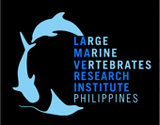
The Large Marine Vertebrates Research Institute Philippines (LAMAVE) is a Filipino NGO dedicated to the conservation of marine megafauna including cetaceans, whale sharks, manta rays and turtles. Project page

Legado’s mission is to protect the most isolated and biodiverse mountain ecosystems in Africa—by working hand-in-hand with the people who call these mountains home. ICFC is pleased to support this work in Mozambique. Project page

Marine Consevation Cambodia (MCC) is a non-profit organization that since 2008 has been advancing marine conservation and community livelihoods in collaboration with the Cambodian Fisheries Administration, local authorities and local communities. Project page
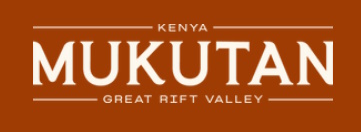
The Mukutan Conservancy (formerly Laikipia Nature Conservatory) safeguards a large and important reserve in Kenya though innovative, creative and sustainable ways of creating and improving livelihoods while preserving the flourishing biodiversity of the conservancy. Project page
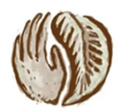
Native Future partners with Indigenous communities in Panama to protect their land rights, support the stewardship of their rainforest ecosystems, and youth education. Project page
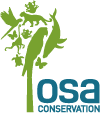
Founded in 2003, Osa Conservation is dedicated to protecting the globally significant biodiversity of the Osa Peninsula. Broad based and collaborative, Osa Conservation's work involves citizen science and professional science, private and public conservation, communities, wildlife, and the Osa's important ecotourism sector. Project page
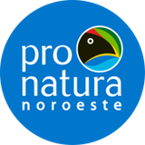
Pronatura Noroeste's mission is the conservation of the flora, fauna, and priority ecosystems of northwest Mexico and to promote the development of society in harmony with nature. We have two projects together: one to try to save the vaquita porpoise from extinction (project page), and one to protect migratory Pacific red knots on the upper Gulf of California (project page).

Proyecto de Selva Pino Paraná: Since 2003 this group of researchers, educators, students and volunteers has worked to improve the state of knowledge and conservation of the Atlantic forest and its species in the Argentinian province of Misiones. Project page
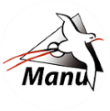
The Société d'Ornithologie de Polynésie (SOP Manu) works to protect wild birds of the islands of Tahiti and to preserve their habitats. Project page

The Red Panda Network believes local communities are key to red panda conservation. They work with the people who live alongside red pandas to secure sustainable livelihoods and live harmoniously with local wildlife. Project page
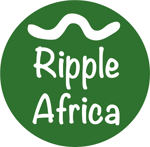
Ripple Africa has been working in Malawi since 2003 to empower communities to achieve a sustainable future "by providing a hand UP, not a hand out". They have addressed unsustainable fishing by establishing Fish Conservation Committees along 300 km of shoreline, greatly improving fishing yields and biodiversity conservation. Project page

Project field coordinator Sayam Chowdhury, Assitant Coordinator of the Spoon-billed Sandpiper Recovery Task Force, works with partner organizations in Bangladesh, Myanmar and China, respectively, the Spoon-billed Sandpiper Conservation Project (BSCP), the Biodiversity and Nature Conservation Association (BANCA), and the Hong Kong Birdwatching Society. Project page

Stop Rhino Poaching is dedicated to raising awareness and support for the war against rhino poaching. This independent organization works closely with South Africa's most important public and prviate reserves for rhinos. Project page
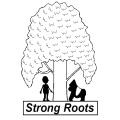
Strong Roots is a grassroots conservation and sustainable development organization operating in eastern Democratic Republic of Congo.To halt the decline of the Grauer’s gorilla, Strong Roots partners with local communities, from providing training on monitoring gorilla populations in community managed forests, to reforestation projects and other alternative livelihood projects for local and indigenous communities. Project page

Yayasan Pelayanan Papua Nenda (YAPPENDA) was founded in January 2022 in order to protect, advocate for, sustain and restore the natural environment of Papua (on the island of New Guinea) through economic empowerment of Indigenous Papuans. (Project page)

WILD Foundation is dedicated to protecting wilderness around the world. WILD partners with local organizations and communities to establish long-term protected areas and integrative conservation strategies. ICFC partners with WILD in our joint Desert Elephants of Mali project. Project page
International Conservation Fund of Canada Copyright © 2009-2025
Registered Canadian charity # 85247 8189 RR0001
